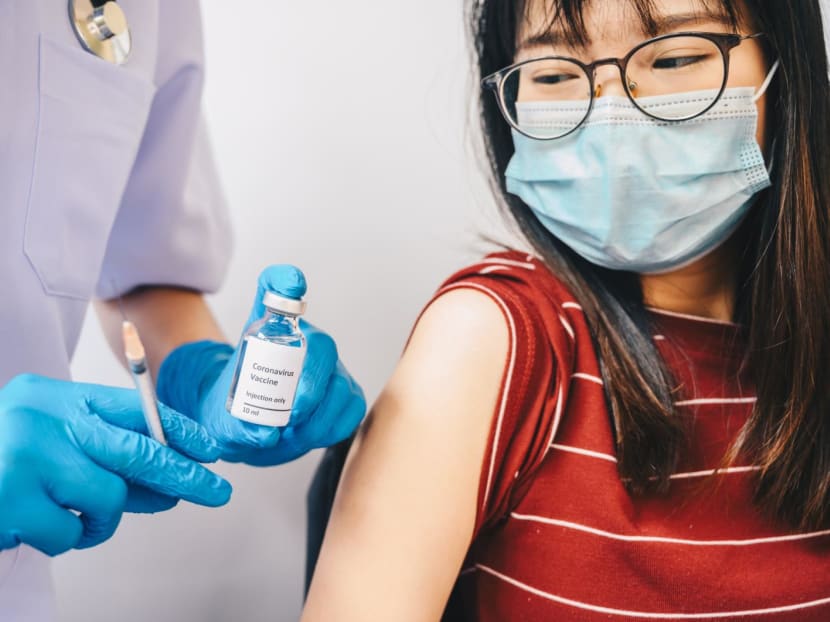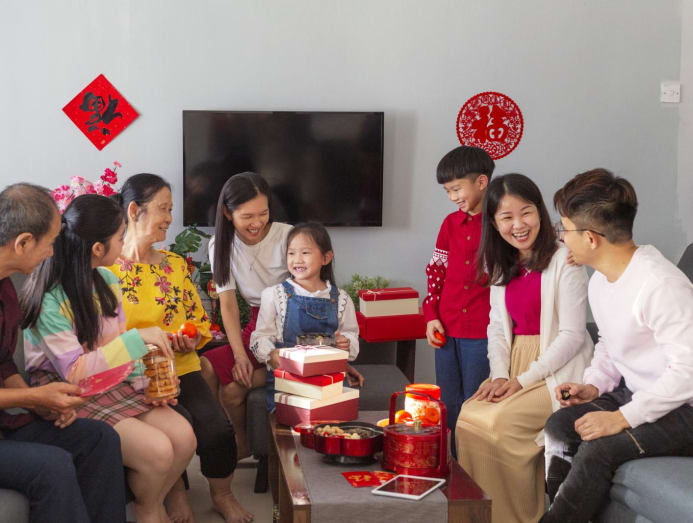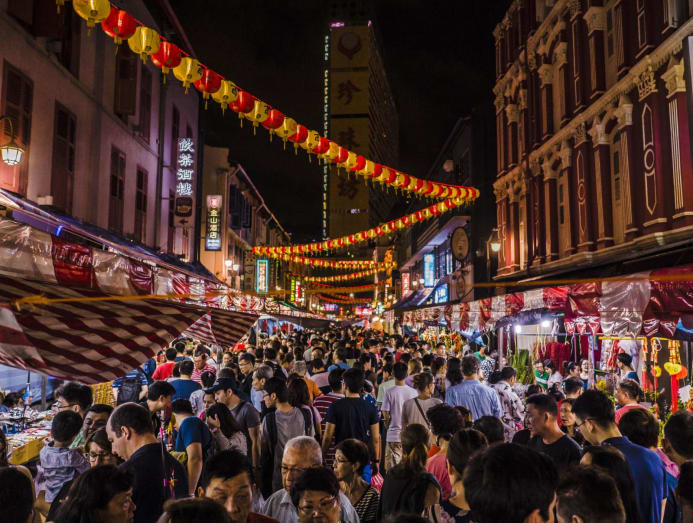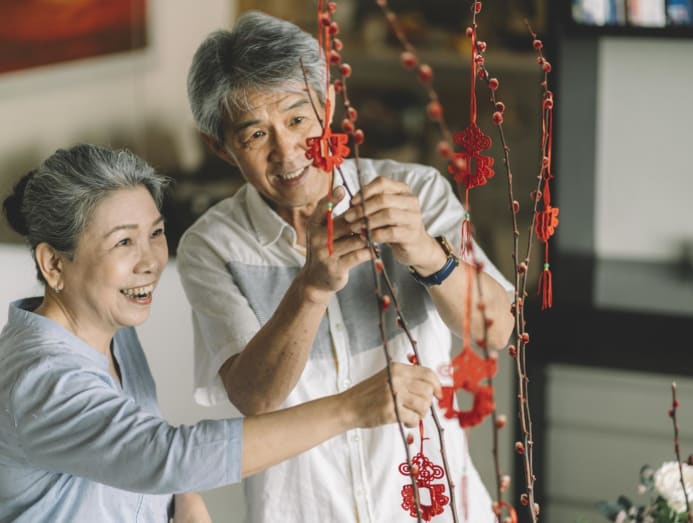Should you get the updated COVID-19 shot in time for Chinese New Year? Here’s what you need to know
How will the updated vaccine protect you against the new strain JN.1? Do you still need it if you’ve recently recovered from COVID-19?

If you act now, you may still be in time to stay protected for Chinese New Year. (Photo: iStock/Boyloso)

This audio is generated by an AI tool.
Amidst the spring cleaning, shopping, making last-minute reunion dinner reservations and rushing to finish up work in the office before Chinese New Year starts on Feb 10, getting up to date on your COVID-19 jabs is probably the last thing on your mind.
But surely, we’ve moved past the pandemic phase – and don’t wearing a mask and practising good personal hygiene already provide the essential protection in the endemic era of COVID-19?
“I want to reiterate that vaccinating yourself against COVID-19 continues to be the best way to protect you and your loved ones from the virus,” said Dr Walter Lim, the managing director of Fullerton Health Singapore.
“When there are multiple respiratory viruses circulating, it is especially important to stay vaccinated as contracting them can have a significant impact on your health, well-being and the ability to continue enjoying time with your friends and family, especially as we approach Chinese New Year.”
ARE YOU STILL PROTECTED?
“Generally, the protection granted by COVID-19 vaccines decreases six months after your last dose,” said Dr Lim. “The updated vaccine can provide a stronger immune response against current and emerging strains compared to older versions of the vaccines, and therefore may provide better protection against COVID-19.”

For the record, you are considered fully vaccinated if you have had two doses of mRNA or three doses of the Sinovac, Sinopharm vaccine, as of Feb 13, 2022. But if your last dose was before May 20, 2021, your full vaccination status will lapse. To maintain your full vaccination status, you should have taken the booster vaccine dose before Feb 14, 2022.
You may have questions about the yearly booster shot, especially during this festive period of visiting and mingling – and especially when the elderly in your family will be exposed. For instance, is it too late to go for the updated booster now? How will it protect against the new JN.1 strain? And if you’ve recovered from COVID-19 recently, does it mean you can go visiting without taking the booster?
Does the new strain JN.1 create more uncomfortable and serious symptoms? How are the vaccines updated to counter it?
The new JN.1 strain creates symptoms that are very similar to those of previous Omicron variants, said Dr Lim, including sore throat, nasal congestion, runny nose, cough, fatigue and headache.
Vaccine manufacturers such as Moderna, Pfizer-BioNTech and Novavax “have developed an updated COVID-19 vaccine for the 2023-2024 vaccination season, and it is anticipated to continue to provide protection against currently circulating strains of COVID-19, which includes JN.1”, said Dr Lim.
Like the seasonal flu virus, the COVID-19 virus will continue to mutate as time goes on, he said. “Staying protected with the updated vaccine can provide a stronger immune response against current and emerging strains compared to older versions of the vaccines and therefore, may confer better protection against COVID-19.”
My last shot was a while back. Should I get the updated vaccine then?
If you had your last vaccine dose over a year ago, you should consider getting the updated vaccine for optimal protection from the newer variants, said Dr Lim.
“It’s important to note that cases in the elderly and medically vulnerable populations do still see higher rates of hospitalisations as they tend to be more vulnerable to the virus,” said Dr Lim. “Hence, protecting yourself with the updated vaccine is important.”

It’s less than three weeks till Chinese New Year. Is it too late to get the updated vaccine jab now?
Do it ASAP as COVID-19 vaccines typically take around 14 days to take effect and provide protection against the virus, according to Dr Lim. “You should also keep in mind the duration it takes for the last dose to take effect before your intended travel date or visitation for Chinese New Year.”
You can get your updated vaccine before Chinese New Year at any of the nine Joint Testing & Vaccination Centres.
What if I’ve just recovered from COVID-19 or have been infected a few times last year? How long will my immunity last?
After a COVID-19 infection or several re-infections, your immune response can protect you against reinfection for several months, but this duration varies from person to person, said Dr Lim. “A prior COVID-19 infection may not be able to protect you as effectively as the most up-to-date vaccination, especially with the ongoing virus mutation,” he said.
“For individuals who have recently contracted COVID-19, the Ministry of Health recommends that you receive your next vaccine dose three months after the infection or the recommended interval for your next dose, whichever is later.”

Do subsequent cases of infection typically create less severe symptoms and thus, less danger?
“Some people may be under the wrong impression that less severe symptoms mean reduced infectiousness,” said Dr Lim. “The severity of COVID-19 infection depends on a number of factors, including the individual’s health status and the prevailing strain of virus circulating in the community.
“That said, studies in patients who have contracted severe COVID-19 have shown that COVID-19 reinfections in this group further increase one’s risk of mortality and medical complications.”
Although the symptoms may be milder for repeat cases, “this does not imply reduced infectiousness or a lower risk of transmitting the infection”, cautioned Dr Lim. “Individuals need to stay protected to reduce the risk of transmission to friends and vulnerable family members.”






